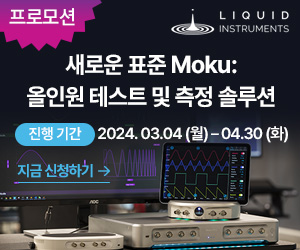[김예지의 인사이트] “15년 뒤 스마트폰 안 쓴다”
기사입력 2023.02.01 12:10
‘앰비언트 인텔리전스’ 사용자 파악·적시 기능 제공
AI 음성·자동화 루틴에서 시작…스마트 기능 극대화
세상에 존재하는 기기들은 자동화를 넘어 지능화가 되고 있는 동시에 일상 속에 자연스럽게 존재하기 시작했다. 앞으로 15년 뒤에는 앰비언트 컴퓨팅으로 서비스의 패러다임이 전환될 것이라는 전문가의 의견이 제시됐다.
1월 31일 e4ds news 웨비나에서는 김학용 IoT 전략연구소 소장이 앰비언트 컴퓨팅 기술 개념과 사례에 대해 설명했다. 김학용 소장은 “스마트폰 시대 이후에는 사용자의 의도를 인식하는 기술들을 활용해 지능화된 서비스를 제공하는 앰비언트 시대가 도래할 것”이라고 주장했다.
‘앰비언트 인텔리전스’란 기존에 있던 기술을 활용해 일상 생활에서 연결되는 다양한 스마트 기기가 스스로 데이터를 분석 및 사용자에게 편리한 기능을 제공하는 것을 의미한다. 필요할 때만 나타나 기능을 제공한다 해서 보이지 않는(Invisible) 특징을 가졌다고도 한다.
■ ‘앰비언트’, 사람이 원하는 것을 스스로 해준다
2010년 활성화된 이후, 우리나라 성인 스마트폰 사용률은 97%, 평균 5.2시간으로 세계 3위를 기록할 만큼 일상에 없어서는 안 될 존재가 됐다. 그러나 이런 추이는 2018년부터 스마트폰 출하량이 -3.3%로 하락세를 보였고, 2022년도에는 -11%가 감소해 12억대 미만으로 떨어진 것으로 나타났다. 그 원인으로는 △비싼 스마트폰 가격 △스마트폰 교체 주기의 증가 △신규 스마트폰 성능 차이 감소 등이 꼽혔다.
인터넷 이용 수단의 변화 관점에서 김 소장은 메타버스, 스마트홈, 커넥티드카 등을 언급했으나, “이는 스마트폰의 접근의 즉각성, 휴대성 등을 보완하는 개념이 아니기에 점차 스마트폰은 허브 등 단말로써 존재하게 되고, 다양한 스마트 장치들은 혼재할 것”이라고 말했다.
결국 적시에 사용자의 필요에 맞게 기술을 쓰게 되는 패러다임으로 서비스 생태계가 바뀔 것이며, 그것이 앰비언트다. 이는 ‘유비쿼터스’와 유사하지만 유비쿼터스가 하드웨어 측면이라면, 앰비언트는 유비쿼터스가 진화한 개념으로 소프트웨어에 가깝다.
앰비언트 인텔리전스는 직관적, 사전적, 개인 맞춤화 3가지의 특징을 갖는데, 이는 배우지 않아도 이미 아는 지식으로 실행 가능하며, 사용자 행동 전 실행하며, 사용자 개개인에게 맞는 서비스를 제공한다는 의미다.
앰비언트는 단계를 거쳐 구현된다. 처음 음성 명령과 자동화 루틴에서 시작되었다가, AI가 학습과 분석을 통해 사용자 요구를 이해할 수 있게 된다. 향후에는 사용자 피드백을 바탕으로 더욱 고도화될 것으로 전망된다.
■ 구글, 아마존, 앰비언트 스마트홈에 적용
▲알렉사 '예감' 기능
앰비언트 컴퓨팅은 스마트홈에서부터 시작될 것으로 전망된다. 현재는 사용자 음성을 인식하는 AI 비서를 기반으로, AI 스피커 및 웨어러블 기기가 발전하고 있다.
아마존과 구글은 2019년부터 앰비언트 컴퓨팅에 주목했다. 지난 CES2023에서 아마존은 스스로 물건을 냉장고에 집어넣는 이동형 선반과, AI 스피커 알렉사로 인간의 음성을 인식하고 AI 고도화를 통해 스마트홈을 개시하는 장면을 선보였다. 알렉사는 스마트홈 동작의 30%를 개시할 것으로 기대되고 있다. 알렉사의 ‘예감’ 기능은 사용자 행동 패턴을 바탕으로 서비스를 제안한다.
구글은 새로운 기기를 추가할 경우, 상황에 맞는 자동화 루틴을 추천해주는 Suggested Routines 기능이 있다. 예컨대 구글 네스트홈에 설정된 알람 시간을 기반으로 조명을 제어할 수 있게 한다.
LG전자는 올해 핵심 과제로 앰비언트 컴퓨팅을 내세우며, 그 중심에는 AI가 있다. 이를 위해 AI 전문가 김정희 전무 등 인재를 충원한 바 있으며, 대학교, 연구소 등과 협력하고 있다.
앰비언트 인텔리전스는 서비스 디자인 철학 관점에서 ‘캄 테크(Calm Tech)’라고도 말한다. 삼성전자는 작년 ‘SDCC2022’에서 앰비언트 컴퓨팅과 유사한 의미인 사람들이 인지하지 못한 상태에서 편리한 서비스를 제공하는 기술로 캄 테크를 언급한 바 있다. 한종희 삼성전자 DX부문장 부회장은 “캄 테크 철학을 바탕으로 사물의 초연결 생태계에서 사용자에게 더욱 강화된 보안을 제공하는 스마트싱스 경험을 선사하겠다”는 포부를 밝혔다.
김 소장은 앰비언트 컴퓨팅의 사례로 하이패스, 애플 에어팟, 아마존 전자레인지, BMW 컨셉카 등을 소개했다. BMW의 i Vision DEE는 버튼이 없고, 대화 기능으로 차를 조종할 수 있다. 구글 AI 로봇 PaLM-SayCan은 인간의 언어를 알아듣고 반응하는 기능을 단계적으로 개발하고 있다. 김 소장은 “앰비언트 컴퓨팅 구현을 위해 기기에 대한 신뢰뿐만 아니라 이러한 서비스를 제공하는 회사에 대한 신뢰도 필요하다”고 말했다.
이어진 질의응답에서 김 소장은 앰비언트 컴퓨팅의 보안 관련해 “사용자 프라이버시의 활용 및 보호를 위해 사물인터넷 서비스 제공 시 개인정보는 해당 공간에서만 사용되고 외부 유출은 금지되는 형태로 추진된다”고 말했다.
또한 향후 우리나라의 앰비언트 컴퓨팅 경쟁력과 관련해 “우리나라는 AI 스피커, GPT 등 AI 경쟁력이 높지 않지만, 개별 분야에 전문 기업들이 있기 때문에 대형 플랫폼 사업자들이 이런 기술들을 잘 활용해 해외 기업과 격차를 줄일 수 있을 것”이라고 기대했다.
앰비언트 컴퓨팅 기술이 활성화되기 위한 사물 인터넷의 각 운영체제와 표준 등에 대한 질문에서는 “앰비언트는 기존 기술이 지능화 된 서비스를 제공하는 것이며, 칩과 운영체제도 그렇다. 통신 쪽으로는 매터라는 표준이 나와서 주로 와이파이, 쓰레드, BLE 쪽으로 포커싱이 맞춰지고 있다. 매터 표준이 보급되면서 디바이스의 수요가 커질 것으로 본다. AIoT는 앰비언트의 기반 기술이며, 매터로 인해 보급이 확산될 것이다”고 답했다.
많이 본 뉴스
[열린보도원칙] 당 매체는 독자와 취재원 등 뉴스이용자의 권리 보장을 위해 반론이나 정정보도, 추후보도를 요청할 수 있는 창구를 열어두고 있음을 알려드립니다.
고충처리인 장은성 070-4699-5321 , news@e4ds.com




.jpg)
.jpg)

.jpg)






